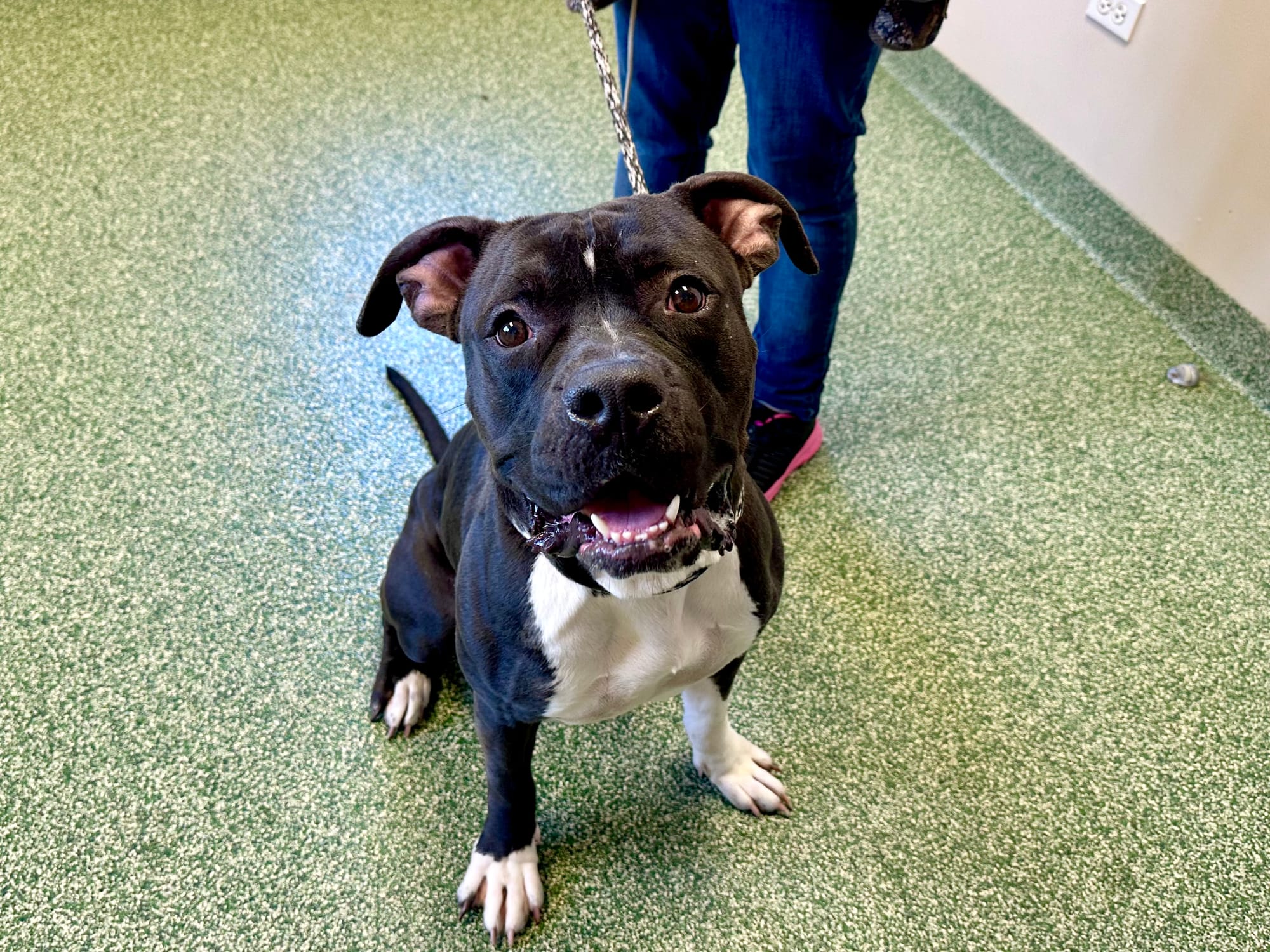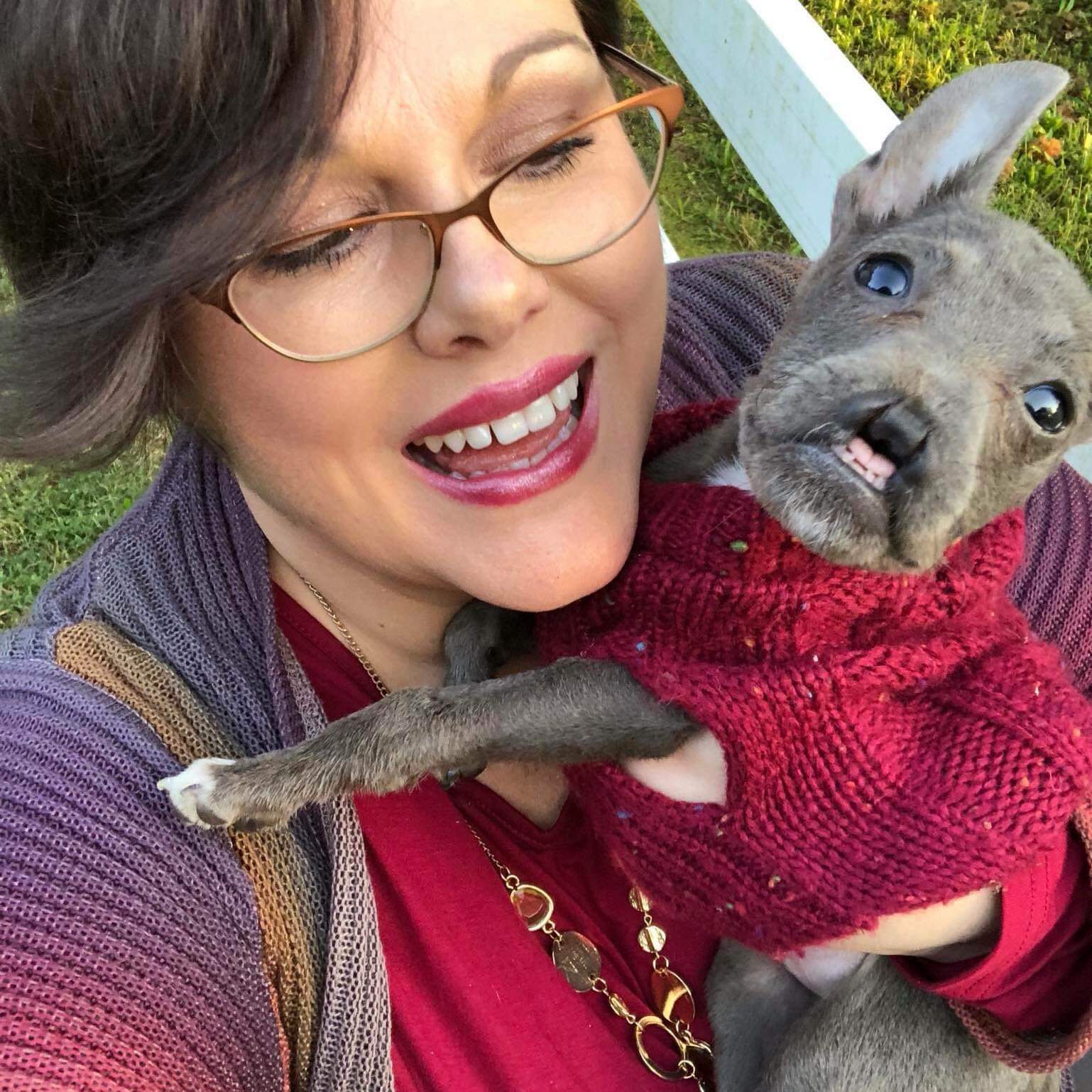Welcome to the ultimate destination for celebrating the unsung heroes of the dog rescue world. At Rescue Spotlight, we're dedicated to highlighting the remarkable journeys of rescue organizations and the incredible individuals behind them.
Whether you seek heartwarming tales of second chances, inspiring stories of rescue missions, or practical insights into the world of dog adoption, you'll find it all here.
Today, we're privileged to interview Cara Achterberg, one of the devoted people behind Who Will Let the Dogs Out You can find a direct link to their Instagram here.
Here is their story:
What inspired you to start or become involved with this rescue organization?
Achterberg: I began visiting shelters in the south and was shocked by the situations there (despite having fostered over 100 dogs at the time). I realized that if I didn't know what was happening, other people didn't know either. Together with photographer Nancy Slattery, we began traveling to shelters to learn and tell their stories.
Can you tell us about a particularly memorable rescue mission or adoption story that stands out to you?
Achterberg: We aren't a traditional 'rescue' in that we don't normally bring home dogs from our shelter visits (although we have done so for other rescues and for one personal adoption). One of the most memorable visits we made was to Nashville City Animal Control (in Georgia, not Tennessee!). There is only one employee there, Animal Control Officer Kayla. She was given a budget for euthanizing dogs, but nearly nothing for feeding or caring for them. She has successfully turned the situation around through her hard work, networking, and willingness to educate her community and leadership. In a place that used to function as a dog pound and euthanize more dogs than they saved, she is now saving every savable dog that lands in her care through adoption and rescues. Although she still has no shelter building (the dogs live outside in raised kennels – think large rabbit hutches), her dogs are healthy and happy. Kayla is also a professional dog-trainer and works to give the dogs playtime, enrichment, and exercise every day. She is proof that one person has the power to rewrite the story.
What are some of the biggest challenges you face as a rescue organization, and how do you overcome them?
Achterberg: The biggest challenges we face are finding ways to raise awareness about the situations we see on our shelter visits (now more than 130!). We believe that the problem of dogs suffering and dying in our shelters doesn't exist because people don't care, but because they don't know. We are working to tell them, knowing that awareness will lead to change.
How do you select the dogs that your organization takes in, and what criteria do you use for adoption?
Achterberg: As I said, we don't bring home dogs (often), but I will say that when we do, it is most often the most vulnerable ones--the pit bulls. Pit bulls are the most often euthanized dogs in our shelters (by far). We also sometimes bring home puppies because they are also vulnerable in a shelter setting.
In what ways do you work to rehabilitate and socialize dogs before they are adopted?
Achterberg: I personally foster dogs in my home and believe the keys are structure, exercise, enrichment, and consistency. I crate-train all my foster dogs and work to give them as many different experiences as I can, beyond that it is different with every dog and I cater their schedule and training to what they most need. Most of what I do focuses on exercise, enrichment, and self-control.
What role do volunteers play in your organization, and how can people get involved?
Achterberg: Everyone involved in Who Will Let the Dogs Out is a volunteer. We have 'shelter liaisons' assigned to track and report on each of the shelters we visit. They share the best ideas/practices/programs so that we can add them to the free Resource Guide for Shelters and Rescues that in on our website. We also have volunteers that work on social media content, fundraising, and administering our grants program. To find out more about getting involved, visit our website: WhoWillLetTheDogsOut.org
Can you share some success stories of dogs who were once in your care and have now found loving forever homes?
Achterberg: I met Ms Fanny Wiggles on a visit to a dog pound in western Tennessee. She was starving, living in her own excrement, and destined to be destroyed at the local vet. (That pound was a pound in the truest sense of the word-impounding dogs for a set amount of time and killing any dog not reclaimed by its owner.). She was a young pit bull whose butt never stopped wiggling (hence the name). I worked with RARE (Rural Animal Relief Effort) to get her out of the pound and brought her home, intending to foster her. Instead I adopted her and now she is a healthy happy pup who loves agility, frisbee, swimming, and snuggling. She's a light of my life.
How does your organization collaborate with other rescues, shelters, or animal welfare organizations?
Achterberg: Our mission is to raise awareness and resources for homeless dogs and the heroes who fight for them. We currently work with 130 shelters in thirteen states, and add more shelters every month. We visit the shelters so we can learn and share their stories, deliver resources, and discover their needs. Going forward we offer grant-writing assistance, our own small grant program, ongoing support/advocacy, and our constantly growing Resource Guide that has hundreds of ideas to help them save lives.
What initiatives or programs does your rescue have in place to promote responsible pet ownership and prevent pet homelessness?
Achterberg: We share ideas and resources through a weekly blog that tells the stories of the shelters we visit and what they are doing to save lives. While the ideas are directed at shelters, I believe there is also wisdom, advice, and resources for pet owners.
Looking ahead, what are your organization's goals and aspirations for the future?
Achterberg: We hope to expand our network of shelters, focusing primarily on municipal shelters as we believe they are the key to creating a sustainable, progressive sheltering system.

